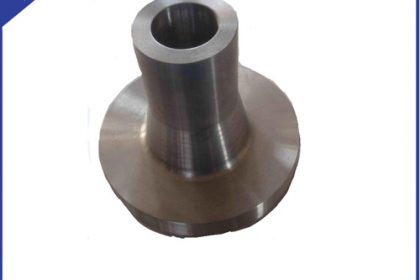

Alloy steel flanges play a crucial role in various industrial applications as they provide a means of connecting pipes, valves, pumps, and other equipment in a secure and leak-proof manner. These flanges are made from a combination of steel and other elements such as chromium, molybdenum, and nickel to enhance their strength, corrosion resistance, and durability.
One of the key benefits of using alloy steel flanges is that they can improve industrial efficiency by ensuring the smooth flow of fluids and gases in a piping system. The precise design and construction of these flanges allow for tight seals between components, preventing leaks and reducing the risk of system failures. This not only enhances the safety of the operation but also minimizes downtime and maintenance costs associated with repairs or replacements.
Alloy steel flanges are known for their high temperature and pressure resistance, making them suitable for use in demanding industrial environments. They can withstand extreme conditions without deforming or failing, ensuring the integrity of the system and preventing costly breakdowns. This reliability and durability of alloy steel flanges contribute to the overall efficiency of industrial processes by providing a stable and reliable connection between components.
Alloy steel flanges are available in a variety of sizes, shapes, and configurations to accommodate different requirements and specifications in various industries. Whether it is for petrochemical plants, power generation facilities, or offshore drilling rigs, there is a suitable alloy steel flange that can meet the specific needs of the application. This versatility and adaptability of alloy steel flanges make them a preferred choice for many industrial applications, contributing to improved efficiency and productivity.
 Language
Language Espanol
Espanol English
English Italian
Italian عربى
عربى
 Skype: chinamaker99
Skype: chinamaker99  Tel: 86-316-5120812
Tel: 86-316-5120812 Email:
Email:  Whatsapp:
Whatsapp: 
